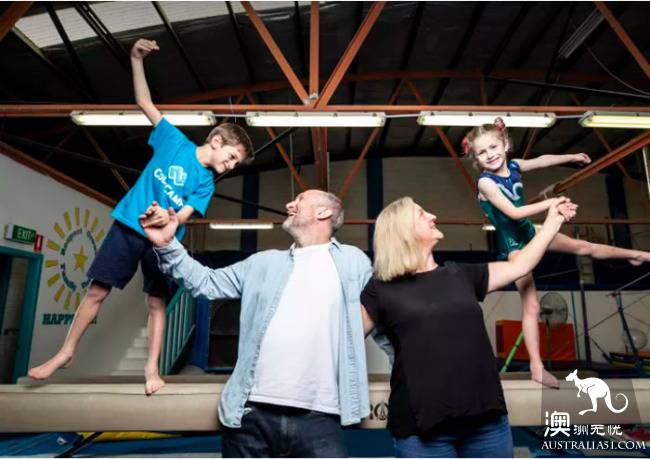According to the Times, a new survey found that some Australian families spend 1/5 of their family`s income on extra-curricular activities.
While out-of-school sports are still popular, a survey of 1000 Australian parents found that 40 percent of respondents enrolled their children in off-campus learning activities. Some parents spend 20% of their household income on these activities.
Mariko Francis, a Ph.D. Fellow at Monash University, said she found that there were two main factors affecting parents` search for activities for their children.
"the higher the level of education a parent is in, the more likely you are to supplement your child`s education," Francis said.
The findings will be published by the Francis at a meeting of the Australian Society for Family Studies this month.

"We have also developed a cognitive scale, and if parents think their children`s learning needs are met at school and their relationship with the school is positive, then even if parents have a high level of education, They also tend not to allow their children to participate in other activities. "
Sam Allison spends 70 yuan each week on extra-curricular activities for her two children, and she says the money will rise to 400 yuan during the school holiday.
Her 8-year-old son, Rafferty Dady, and her 6-year-old daughter, Luella Dady, play football, swim and take gymnastics classes every week.
During the last school holiday, the two children also took part in a three-day Code Camp,Allison, saying the children might go later.
"I think extracurricular activities are very important and I took part in a lot myself when I was a child. Sometimes it`s hard to balance, but I just think it`s important to do something out of school and meet new friends. "
Allison said she tended to exercise, play or art when her children were young, but she also began to make up classes for her son once a week. "I hope they don`t play football or practice gymnastics all day. In fact, educational things are not the key, more to let them meet together to be friends, can try together. "
Allison says she has a bachelor`s degree, while her husband, Julian Dady, holds a master`s degree in business administration.
Although she likes the children`s school, Allison believes extra-curricular activities can be more personalized.
"the school is great and gives children a lot of support, but there are so many different children in the class that the school can`t pay too much attention to a child."
According to Francis, decisions about extracurricular learning activities are generally different from those related to sports. However, she also pointed out that the location of the school, the age of the child, and the place where the parents were born did not seem to have anything to do with whether they allowed their children to participate in other learning activities.
But Francis also believes that some children are less likely to take part in these activities because of economic or geographic reasons, and that they will also be at a greater disadvantage.
"there is evidence that it is good for children to participate in different activities. For students who do have extra-curricular needs and do not receive support at school, there may be a fair question if parents are unable to allow them to attend. "

